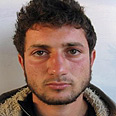Contrary to the view of the Kesef Mishna and clearly at variance with Rav Elchonon Wasserman that the authority of a Tanna is that of Sanhedrin which an Amora can not reject. And also in disagreement with the Chazon Ish that the Tanna had greater knowledge of the truth than an Amora - is Rav Chaim Brisker's view that theoretically an Amora can disagree with a Tanna but in general don't.
Rav Elchonon Wasserman[i](Kovetz Shiurim Bava Basra 170a #633): Rav said that the halacha is neither that of R’ Yehuda nor of R’ Yochanon. The Rashbam said that Rav was considered a Tanna and thus could disagree with other Tanaim. However Tosfos (Kesubos) says that R’ Yochanon disagreed with this halacha and since we have a rule that in a dispute between Rav and R’ Yochacon that we rule in accord with R’ Yochanon that means that Rav is not viewed as a Tanna and thus cannot argue with Tannaim. But this presents a question. How can it be that Rav is disagreeing with the Mishna here? This question I asked my teacher R’ Chaim Brisker and he answered, “That in truth an Amora has the power to disagree with a Tanna. This that we regularly find the Talmud rejecting the views of an Amora by simply showing that a Tanna rejects it – that is because as a general rule an Amora did not disagree with a Tanna. So if the Amora only knew the view of the Tanna we assume he would not disagree with it. However where we see that an Amora explicitly disagrees with a Tanna it is possible that the final halacha is in agreement with the Amora.”


